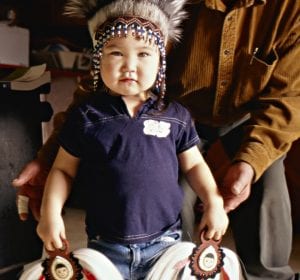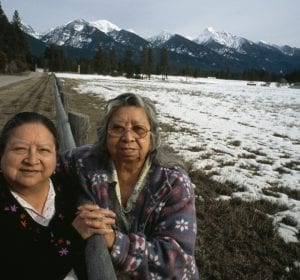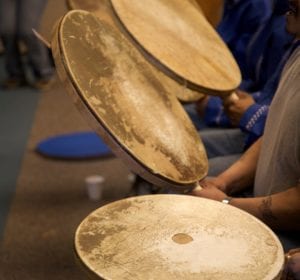Hobbs, Straus, Dean & Walker, LLP
Promoting and Defending Tribal Rights
Achievements
Representing the Maniilaq Association in federal court, Hobbs Straus obtained a decision that established the right of tribes and tribal organizations to full compensation from IHS for leases of clinics used to carry out Indian Self-Determination Act agreements. This ruling paved the way for tribes and tribal organizations around the country to obtain substantially more facilities funding.
Achievements
In upholding tribal sovereign immunity for off-reservation commercial activity, the United States Supreme Court in Michigan v. Bay Mills Indian Community cited as support an amicus curiae brief authored by Hobbs Straus attorneys for the proposition that it is incumbent upon the State to negotiate for a waiver of tribal sovereign immunity in a Class III gaming compact.
Achievements
Hobbs Straus attorneys represented the Seminole Tribe of Florida in its negotiation of the landmark 2010 Gaming Compact with the State of Florida.
Achievements
In 2016, Hobbs Straus attorneys represented the Agua Caliente Band of Cahuilla Indians in its successful effort to negotiate an amended gaming compact with the State of California.
Achievements
Hobbs Straus attorneys represented the Seminole Tribe of Florida in federal court litigation that affirmed the Tribe's right to continue offering banked card games until 2030.
Achievements
In 2018, Hobbs Straus attorneys obtained approval from the National Indian Gaming Commission for groundbreaking technical standards for Class II mobile gaming developed by the Agua Caliente Band of Cahuilla Indians.
Achievements
In 2014, Hobbs Straus attorneys obtained a favorable advisory opinion from the National Indian Gaming Commission for the Coeur d'Alene Tribe on an electronic bingo game that permits "proxy play" by the gaming operation on behalf of players who previously purchased bingo cards on the Tribe's reservation lands.
Achievements
Hobbs Straus prepared the successful petition of Native Village of King Salmon for federal recognition under the standard set forth in the Alaska Amendment to the Indian Reorganization Act resulting in King Salmon being added to the list of federally recognized tribes.
Achievements
Hobbs Straus attorneys assisted a tribal 8(a) enterprise to set up meetings and briefings with U.S. and multilateral development agencies and firms to explore opportunities for tribes and tribal enterprises to enter into the arena of international development consulting.
Achievements
Attorneys from Hobbs Straus drafted international cooperation agreement between U.S. and Bolivian tribal organizations for the implementation of collaborative program activities, including the training, development and mentoring of indigenous leaders.
Achievements
One of our attorneys facilitated the visit to Bolivia of indigenous delegations from the United States and New Zealand at the invitation of President Evo Morales to discuss strategies to promote implementation of the U.N. Declaration on the Rights of Indigenous Peoples.
Achievements
Hobbs Straus attorneys negotiated the first tribal ferry construction project under the Self-Governance provisions of the Indian Self-Determination and Education Assistance Act.
Achievements
Attorneys from the firm worked with a tribal-federal workgroup to develop the model self-governance Indian Reservation Roads Program addendum reflecting legislative changes adopted in the SAFETEA-LU authorization.
Achievements
On behalf of the National Congress of American Indians and the Intertribal Transportation Association, Hobbs Straus advocated for the adoption of legislative language and to increase Indian Reservation Roads Program funding and expand transportation programs available to tribes in the SAFETEA-LU highway authorization.
Achievements
Attorneys from the firm advised the Tribal Negotiated Rulemaking Committee in developing the Indian Reservation Roads Program regulations.
Achievements
On a number of occasions, Hobbs Straus attorneys successfully defended a tribe against Equal Employment Opportunity Commission jurisdiction over a tribal casino employee claim.
Achievements
From 2007 through 2009, Hobbs Straus attorneys assisted a tribe in avoiding millions of dollars in IRS taxes and penalties.
Achievements
Hobbs Straus attorneys successfully defended a tribal college against civil-rights claims in Tenth Circuit Court of Appeals in 2008.
Achievements
Through a federal suit in 2007, Hobbs Straus attorneys obtained protection of tribal court authority over child custody proceedings.
Achievements
In 2004, Hobbs Straus attorneys obtained the first federal approvals from the Department of the Interior for a landmark gaming compact for two tribes in Oklahoma.
Achievements
Hobbs Straus attorneys obtained the first Oklahoma federal charter under Section 17 of the Indian Reorganization Act in 2006.
Achievements
In 2008, Hobbs Straus attorneys negotiated the first Oklahoma tobacco compact requiring wholesalers to collect tribal taxes.
Achievements
Hobbs Straus represented a consortium of Oklahoma tribes in negotiating the first compact to offer a wide range of Class III machine and card games for Oklahoma tribes.
Achievements
Hobbs Straus participated in negotiations of one of the first compacts and funding agreements in Alaska under Title IV of the ISDEAA with the U.S. Fish and Wildlife Service and the U.S. Bureau of Land Management.
Achievements
In a joint effort with the United States, our attorneys successfully established the right of tribal health contractors in Alaska to collect third-party reimbursements in U.S. and Norton Sound Health Corp. v. Bering Strait School District, 138 F.3d 1281 (9th Cir. 1998).
Achievements
Obtained Section 8(a) certifications for tribally owned companies, including the certification of a tribal 8(a) company jointly owned by 18 tribes and their non-profit regional tribal organization in Alaska.
Achievements
Our attorneys worked on behalf of the Native Village of Barrow to establish the right of the Village to exercise exclusive jurisdiction under the Indian Child Welfare Act in Alaska.
Achievements
Hobbs Straus played an active role assisting a number of tribal clients negotiate the Alaska Tribal Health Compact, the first statewide self-governance agreement in the country.
Achievements
One of the first tribal contracts to provide all BIA services to its members was negotiated by the Miccosukee Tribe with assistance from founding partner, Bobo Dean.
Achievements
Hobbs Straus participated in negotiations of one of the first compacts and funding agreements under Title IV of the ISDEAA with the U.S. Fish and Wildlife Service and the U.S. Bureau of Land Management.
Achievements
With our assistance, in 1995, the Susanville Indian Rancheria was one of the first tribes to assume all available tribal shares under Title I of the ISDEAA from the IHS in 1995 and then successfully litigate against the IHS the right to continued full funding of those shares.
Achievements
Hobbs Straus litigated a case establishing the right of a tribal organization to contract under Public Law 93-638 in a service area that was not a "reservation" in Rapid City Indian Health Board v. IHS, IBIA No. 97-100-A.
Achievements
Hobbs Straus lawyers have played key roles in obtaining amendments to the ISDEAA to strengthen tribal rights to administer BIA and IHS programs under Titles I, IV and V.
Achievements
Hobbs Straus attorneys successfully obtained the first Interior Board of Contract Appeals ruling entitling a tribal school to 100% of administrative cost grant funding in Alamo Navajo School Board and Miccosukee Corporation v. BIA, IBCA 3463-3466, IBCA 3560-3562 (Dec. 4, 1997).
Achievements
Hobbs Straus played a key role in negotiating one of the first contracts with the Bureau of Indian Affairs under the new Title I Self-Determination regulations.
Achievements
In 2008, Hobbs Straus attorneys successfully litigated a case to stop construction on a tribal sacred site within a military base.
Achievements
Our successful negotiation of a water rights compact for the Seminole Tribe resulted in the recognition of Winters Doctrine rights for an Eastern Tribe located in a riparian state.
Achievements
Hobbs Straus successfully negotiated the Habitat Conservation Plan under the Endangered Species Act involving in-river habitat and hydroelectric dams on behalf of tribes with treaty fishing rights.
Achievements
The firm established the right to money damages for breach of trust duty in the landmark case of Mitchell v. United States, 463 U.S. 206 (1983), an action for mismanagement of tribal timber resources by the Bureau of Indian Affairs. The case settled for $27 million.
Achievements
Hobbs Straus lawyers obtained an injunction against the U.S. Fish and Wildlife Service in a case establishing that treaty rights to hunt also include a right to protection of wildlife habitat.
Klamath Tribes v. United States, 1996
WL 924509 (D.Or. 1996)
Achievements
In 1984, lawyers at Hobbs Straus assisted the Cochiti Pueblo of New Mexico in securing legislative restoration of the 26,000 acre Santa Cruz Springs Tract
Achievements
In 1992, Hobbs Straus assisted the Cochiti Pueblo of New Mexico in securing a legislative settlement of its claim for destruction of tribal crop lands flooded by seepage from the Cochiti Dam.
Achievements
Our firm assisted a tribe in its successful effort to secure a Forest Service decision banning rock climbing on Cave Rock, a significant tribal cultural site, and filed an amicus brief in Access Fund v. U.S. Department of Agriculture in support of the Forest Service’s decision, which was upheld.
Achievements
When the Cochiti Pueblo of New Mexico objected to the development of hydropower at the Cochiti Dam, Hobbs Straus helped the Tribe secure legislation blocking its development (1990).
Achievements
Our firm successfully presented a tribe's position to EPA to ensure tribal-federal jurisdiction over components of an expansive water project serving Indian and non-Indian communities.
Achievements
Our firm represented a tribe in a land claim case in which we persuaded the federal government to intervene on behalf of the tribe. Canadian St. Regis Band of Mohawk Indians v. State of N.Y., Nos. 82-CV-783, 82-CV-1114, 89-CV-829 (N.D.N.Y.)
Achievements
Hobbs Straus attorneys have assisted several tribes and tribal organizations to obtain from the Small Business Administration Section 8(a) certifications for tribally owned companies.
Achievements
Over several years, Hobbs Straus attorneys assisted with the enforcement of a tribal oil and gas tax code that created millions of dollars in tribal revenues.
Achievements
In 2007, Hobbs Straus attorneys helped to secure financing with consent to exclusive tribal court jurisdiction for an Oklahoma tribal casino development.
Achievements
On behalf of the Mohegan Tribe of Connecticut, Hobbs Straus assisted in obtaining one of the first successful issuances of commercial bonds to finance the construction of an Indian casino.
Achievements
Hobbs Straus lawyers assisted in the negotiation and completion of a $35 million revolving credit note from a financial institution for a tribe and the subsequent re-financing of the revolving credit loan.
Achievements
In 2004, Hobbs Straus attorneys obtained the first federal approvals from the Department of the Interior for a landmark gaming compact for two tribes in Oklahoma.
Achievements
Over several years, Hobbs Straus attorneys developed tribal gaming regulatory and operational infrastructure for several Oklahoma tribes.
Achievements
In 2006, Hobbs Straus attorneys developed a model tribal casino vendor contract used by several Oklahoma tribes.
Achievements
In 2004, Hobbs Straus attorneys assisted a tribe in reducing a federal fine against a tribal casino from $12.5 million to $2.5 million.
Achievements
Working with the Seminole Tribe of Florida in 1988, Hobbs Straus attorneys obtained one of the first legal opinions on electronically assisted games.
Achievements
Hobbs Straus lawyers helped prevent the federal government from enforcing criminal gaming laws against a tribe in a civil injunction action in United States v. Menominee Tribe, 694 F.Supp. 1373 (E.D. Wis. 1988).
Achievements
In 2007, we assisted the Lytton Band of Pomo Indians in its successful effort to block proposed legislation that would have stripped the Tribe of its gaming rights.
Achievements
Lawyers at the firm obtained a $1 million reduction in NIGC penalties against the Absentee Shawnee Tribe by successfully negotiating a compact for challenged games with the State of Oklahoma.
Achievements
Hobbs Straus has represented tribes and Tribally Designated Housing Entities in development of the Native American Housing Assistance and Self-Determination Act (NAHASDA), as well as at each negotiated rulemaking and statutory reauthorization.
Achievements
Hobbs Straus worked with an Indian housing authority in 2005 to develop innovative procedures to test units for methamphetamine and for evicting tenants based on violations.
Achievements
In 1990, attorneys from the firm litigated the first state case finding that a former Five Tribes restricted allotment was a “dependent Indian community” and that state courts had no jurisdiction to evict an Indian housing authority homebuyer, which resulted in the establishment of the CFR court system in Eastern Oklahoma.
Achievements
Lawyers in the firm obtained an Interior Board of Contract Appeals ruling entitling a tribal school to 100% of administrative cost grant funding in Alamo Navajo School Board and Miccosukee Corporation v. BIA, IBCA 3463-3466, IBCA 3560-3562 (Dec. 4, 1997).
Achievements
Lawyers from the firm assisted a tribe in securing the first California law to recognize the concurrent criminal jurisdiction of an Indian tribe by recognizing tribal law enforcement vehicles as emergency vehicles and the authority of tribal law enforcement.
Achievements
Current Hobbs Straus counsel litigated C.M.G. v. State, 594 P.2d 798 (Ok. Cr. 1978), the first case finding the existence of a dependent Indian community/Indian country in eastern Oklahoma.
Achievements
In 2009, Hobbs Straus successfully defended a former casino workers’ suit against a Tribe in a Tenth Circuit case finding absence of federal jurisdiction over non-Indian contract and tort disputes arising in Indian country.
Achievements
Prior to the founding of Hobbs Straus, Jerry Straus was lead Washington, D.C. counsel in the first large-scale case for the restoration of historic Indian land – the restoration of the 48,000 acre Blue Lake lands to the Taos Pueblo.
Achievements
Hobbs Straus has prepared and filed over 25 U.S. Supreme Court amicus curiae briefs on behalf of tribes and tribal organizations on a variety of issues important to Indian affairs.
Achievements
Prior to the founding of the firm, Charles Hobbs successfully litigated early court rulings that led to a Supreme Court decision that the Tribe retained its treaty hunting and fishing rights after Congress terminated the Tribe. Menominee Tribe v. United States, 391 U.S. 404 (1968).
Achievements
Hobbs Straus obtained a federal court order that upheld tribal court jurisdiction requiring a non-Indian company to exhaust tribal remedies in a taxation dispute in Reservation Telephone Cooperative v. Three Affiliated Tribes, 76 F.3d 181 (8th Cir. 1996).
Achievements
Hobbs Straus defeated an attempt by the State of Florida to sue the Seminole Tribe over a gaming dispute by the successful assertion of tribal sovereign immunity. Florida v. Seminole Tribe, 181 F.3d 1237, (11th Cir. 1999)
Achievements
Lawyers in the firm successfully argued the appeal establishing that the Indian Child Welfare Act pre-empted procedural requirements of Oregon state law, where such requirements interfered with the intent of the Indian Child Welfare Act. In re Shuey, 119 Or.App. 185, 850 P.2d 378 (Or.Ct.App. 1992).
Achievements
Our firm defended a tribal absentee ballot law (denying absentee ballots to non-resident members) against constitutional attack in Jacobson v. Eastern Band of Cherokee Indians, No. CV-05-101 (Supreme Court of the Eastern Band of Cherokee Indians, Nov. 29, 2006).
Achievements
Our firm assisted the Comanche Nation in obtaining an injunction against the USDOI/BIA preventing approval of a compact for a foreign tribe in Comanche jurisdiction and a subsequent settlement reinforcing Comanche Nation veto authority over other tribes’ attempts to displace Comanche jurisdiction.
Achievements
In 1997, Hobbs Straus lawyers assisted the Susanville Indian Rancheria become one of the first tribes in the country to use the provisions of ISDEAA to successfully acquire Department of Army surplus property in trust under the Base Realignment and Closure Act.
Achievements
In 1991, lawyers at Hobbs Straus assisted the Aroostook Band of Micmacs of Maine to secure federal recognition and the benefits of the Maine Settlement Act.
Achievements
Our attorneys assisted an intertribal effort in California to secure state legislation repudiating the use of the “existing Indian family doctrine,” a doctrine used to avoid application of the Indian Child Welfare Act.
Achievements
Over the past several years, the firm has litigated dozens of Contract Support Cost claims against the Indian Health Service on behalf of tribal clients. In the process we have assisted tribes and tribal organizations recover hundreds of millions of dollars in settlements from the Indian health Service.
Achievements
In 2008, Hobbs Straus secured a federal court ruling in favor of an Alaska tribal organization whose cultural heritage resources funding was revoked by the Bureau of Indian Affairs (BIA). The court held that BIA’s decision was arbitrary and capricious, and the agency restored the funding. Aleutian Pribilof Islands Ass’n, Inc. v. Kempthorne, 537 F. Supp. 2d 1 (D.D.C. 2008).
Achievements
In an important case involving funding levels under the Indian Self-Determination Act, the firm obtained a ruling that the “Secretarial” amount the Indian Health Service must transfer to a tribe includes third-party revenues—such as Medicare, Medicaid, and private insurance—that IHS would otherwise have used to run the program being contracted. Pyramid Lake Paiute Tribe v. Burwell, 70 F. Supp. 3d 534 (D.D.C. 2014).
Achievements
When the Supreme Court considered the constitutionality of the Affordable Care Act in 2012, Hobbs Straus authored an amicus brief arguing that the Indian Health Care Improvement Act reauthorization that was part of the ACA legislation should survive even if other parts of the ACA were stricken. The brief commanded near-unanimous support from Indian country, with 449 tribes signing on.
Achievements
In 2018, Hobbs Straus served as the principal author of the tribal amicus brief in the multidistrict opioid litigation. Nearly 450 tribes signed onto the brief, which explained the disproportionate impact of the opioid crisis on tribes and the need for tribes to have their own seat at the table in any settlement discussions.
Achievements
Hobbs Straus attorneys successfully negotiated an agreement between two Tribes in Central Oklahoma for juvenile detention services.
Achievements
Hobbs Straus assisted Tribes in Oklahoma, Florida and other locations across the country in drafting Business Site Leasing Ordinances, which subsequently received federal approval under the HEARTH Act. This paves the way for a number of economic development opportunities for the Tribes.
Achievements
Hobbs Straus aided an Oklahoma Tribe in establishing a relationship with the Red Cross, which has led to the development of two different agreements seeking to protect the safety of tribal members.
Achievements
Hobbs Straus attorneys represented the Absentee Shawnee Tribe of Indians of Oklahoma's interest in a water pipeline right-of-way litigation matter. We negotiated a landmark settlement with the City of Oklahoma City addressing the City's trespass and securing substantially greater than appraised value compensation, and providing strong legal, environmental, and cultural protections for the Tribe.
Achievements
Hobbs Straus attorneys assisted an Oklahoma Tribe with the evaluation and negotiation of a settlement against pharmaceutical drug companies that resulted in a six-figure payment to the Tribe.
Achievements
Hobbs Straus attorneys successfully protected an Oklahoma Tribe and its status as a sovereign nation when a local city government attempted to force the Tribe to collect and pay city sales taxes on tribal lands.
Achievements
Hobbs Straus attorneys provided legal guidance to the Spokane Tribe of Indians in support of the development and construction of a new casino in Spokane, Washington.
Achievements
Hobbs Straus attorneys successfully secured the return of $6.5 million in frozen federal funds for the Cheyenne and Arapaho Tribes. The federal monies, dedicated to funding tribal programs, were essential in providing much-needed social services to tribal members.
Achievements
Hobbs Straus attorneys assisted in the recovery of nearly $800,000 in Cheyenne and Arapaho Tribes' per capita funds that had been misdirected by the Bureau of Indian Affairs.
Achievements
Hobbs Straus attorneys negotiated and finalized an $8.4 million settlement for the Cheyenne and Arapaho Tribes against the United States for trust asset mismanagement.
Achievements
Hobbs Straus attorneys successfully assisted a number of Oklahoma tribes in collecting unpaid oil and gas severance taxes from oil and gas companies operating within Tribal jurisdictions, as well as negotiate new oil and gas leases at greater bonus and royalty amounts than previous leases.
Achievements
Hobbs Straus attorneys brought 12 BIA administrative cases to a successful conclusion for an Oklahoma Tribe. Internal tribal conflicts from prior administrations spawned a dozen administrative lawsuits which Hobbs Straus attorneys were able to bring to a successful conclusion and afford the new administration an opportunity to resume formal communications with the federal government.
Achievements
Hobbs Straus attorneys coordinated with Tribal and federal officials to identify and end gamesmanship schemes of a rogue tribal gaming manager, vendor, and their accomplices.
Achievements
Hobbs Straus attorneys assisted the Wichita and Affiliated Tribes with the development and construction of a travel plaza and cultural history center, successfully defending efforts to prevent and/or remove the development.
Achievements
Hobbs, Straus attorneys assisted multiple Oklahoma Tribes with a gaming compact amendment to expand the scope of gaming to include ball and dice games.
Achievements
Hobbs Straus attorney drafted tribal ordinances for Oklahoma Tribes to carry out the full extent of their prosecutorial authority order of the Violence Against Women Act.
Achievements
Hobbs Straus attorneys assisted the Absentee Shawnee Tribe of Indians of Oklahoma with a multi-million dollar refinancing of its Health Clinic resulting in more favorable terms for the Tribe.
Achievements
Hobbs Straus attorneys assisted the Wichita and Affiliated Tribes with the acquisition of multiple parcels of land to support future plans.
SUBSCRIBE









